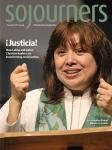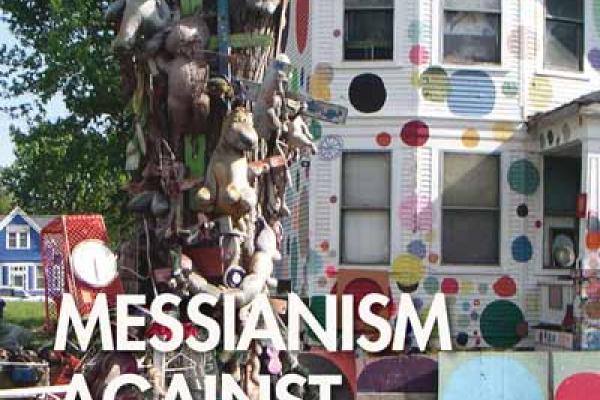GROWING UP conservative, white, suburban, and evangelical in North America, for me nothing was more important than the Bible and Jesus. Yet like many, I have grown out of evangelicalism—not because the Bible and Jesus are no longer important, but because the “Bible answer men” have used their interpretations to justify nonsense all over the globe.
James W. Perkinson’s Messianism Against Christology is an important contribution to the Bible and Jesus reclamation project of post-evangelicals, poets, and prophets. This works delves into “the deep past” of cultures and scriptures, but begins and ends in current-day Detroit (a city where imperialism and resistance face off daily). Perkinson reads this cityscape and riffs on an alternative future glimpsed in urban folk art, hip-hop, and “rewilding” abandoned spaces.
Perkinson proclaims that “this work is a reading of the Jesus-event as movement ... and intelligible only to the degree we take such ‘movement history’ seriously.” He takes to task the monopolizing and colonizing “Western messianic complex” and the corresponding doctrine represented in classic Christology: “[N]o other name has leveraged more conquest, enslavement, and plundering in human history. ... under the spiritual sponsorship of a kind of Logos-delirium, ‘Christ’ has been made the Alpha-Male Author and Great Heavenly Apologist of the End Game of the epoch.”
Perkinson ultimately offers a theological correlate to Daniel Quinn’s Beyond Civilization. A truly biblical messianism (as opposed to Christology) is a creative, analytic critique of empire rooted in small communities of nurture and struggle. “What we need to be saved from in such an orientation,” Perkinson writes, “is the imperial pretension to conquer, control, and enslave an entire planet of resources and life forms.”
Perkinson’s own urban roots dispel the myth that those who commit to this messianism against Christology must literally check out of civilization and enter the wild. Perkinson upholds a faith that “will highlight values and recall traditions whose power is rooted in wildlands symbiotics and insist these are central to the struggle for justice in an otherwise settled lifestyle.” It’s more about a shift in mentality and sensibility than about geography.
A white seminary professor in an impoverished African-American city (83 percent black), Perkinson’s commitment to Detroit goes back four decades, when he arrived to experiment in Christian intentional community. He eventually got saved, he says, by black inner-city culture, a powerful incubator for the messianism he has chronicled here.
His own spoken-word poetry and activism infuse his academic work.
Reading Messianism requires focus and discipline in order to truly drink up the exquisite theological vistas. Ultimately, as Perkinson warns readers, his work is “suggestive,” offering theological “soundings” that demand further work and refining by readers as they faithfully confront their own unique watershed challenges. His is a quest “to catch certain details in a refractory light that opens the doors of inquiry and imagination.” Perkinson refreshingly offers a first word, not the last.
Messianism Against Christology is currently available only in hard cover and listed at $100. Finally, a book price that matches the blood, sweat, and tears that the author has poured into it! But few who will benefit from it have the funds to buy it. Here’s hoping a publisher will produce a paperback edition of Messianism Against Christology and make an alternative road less traveled more accessible.

Got something to say about what you're reading? We value your feedback!

